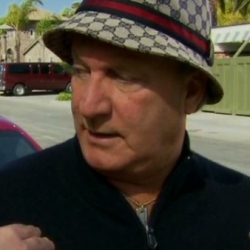With Super Bowl weekend less than two weeks away, a cautionary tale about the dangers of drinking and gambling might be in order. Just in time for the biggest week of sports betting in the United States, a story from last year’s Super Bowl Sunday has become relevant again.
The case of Mark Johnston, who ran afoul of trouble in Las Vegas during the 2014 Super Bowl Sunday, is the case in point.
Mark Johnston, a retired Ventura, California business owner, is suing the Downtown Grand Casino in Las Vegas for serving him alcohol, which he says is the only reason he totaled a massive half-a-million dollars in gambling debts over a 17-hour period. Johnston says the casino staff knew he had had too much to drink at the time he began gambling in their establishment, yet they continued to serve him drinks. When he woke up the next day, Johnston says he was floored to learn he had piled up $500,000 in gambling debts in one night’s action.
$500K in Gaming Debts in One Night
Worse, says the former owner of a LA-area car dealership, the staff encouraged him to incur $500,000 in debts while gambling under the influence. Nevada regulations require casino personnel to spot drunk players and control both their drinking and gambling, when such activity becomes obvious. The case may not end well for Mark Johnston, but the case has Nevada regulators checking into policies at the Downtown Grand.
Johnston’s lawsuit is for $1 million plus lawyer fees. The Downtown Grand has counter-sued for the $500,000 it says Johnston owes them. Casinos often deal with gamblers who take out markers, but do not repay their casino credit. In most cases, state gaming laws require the gambler to repay their gaming debts. Only in cases where the casino can be proven to have been negligent or malicious can the gambler avoid payment, but such cases are hard to prove.
What Is a Marker?
Most gamblers at a casino do not receive credit, which are called “markers” in the industry. To qualify, one has to be considered a high roller and to have an excellent credit rating. In many establishments, the minimum amount of a marker is $10,000.
Markers are given out to players whom the casino assumes can pay, if their bets go bad. When a high roller fails to pay back the debt in a timely fashion, the casino does not hesitate to file suit.
Compares the Lawsuit to Extortion
Mark Johnston compares the Downtown Grand’s lawsuit to some kind of criminal extortion case. Johnson told Channel 3 News, “They’re…trying to extort me and scare me. I’m not scared.”
Johnston took a certain level of responsibility for his gambling debts, but he says the casino broke the law when it continued to serve alcohol to a person who was obviously drunk. Johnston and his lawyers contend the Downtown Grand broke Nevada state gaming regulations by continuing to allow him to gamble while he was intoxicated.
Johnston’s Statement
Mark Johnston told the news, “They served me all the drinks. They should have cut me off. At some point, that’s my responsibility, but the unfortunate part about it for them is, they have a bigger responsibility than I do.”
Such cases appear in the news occasionally. In 2014, a prominent United Kingdom casino, The Ritz, sued the former wife of Oman’s ambassador to the UK for debts incurred playing punto banco. The The woman in that case, Nora al-Daher, wagers £2 million in one night of gambling, despite her being a well-known problem gambler. In testimony in a British court, al-Daher said the casino’s management continued to urge her to accept more markers, well after it was obvious her known gambling addiction had taken over.
Super Bowl Weekend
Mark Johnston’s gambling binge took place on Super Bowl weekend. He was in town with a group of friends and ended up in the casino, gambling the night away. Over Super Bowl weekend of 2014, Las Vegas sportsbooks collected $118 million in revenue, which was a ten-year high for the Las Vegas sports betting industry. With the economy better this year and two #1 seeds playing in the NFL’s premier game, revenues are expected to top $120 million this year.

